
Latest News Regarding
Horn of Africa
Ethiopia warns Sudan over military build-up amid border tension
Ethiopia warns Sudan over military build-up amid border tensions




Source: Aljazeera, Wednesday January 13, 2021
Tensions over longstanding feud over the disputed al-Fashqa region come amid new impasse in three-way dispute over mega-dam.
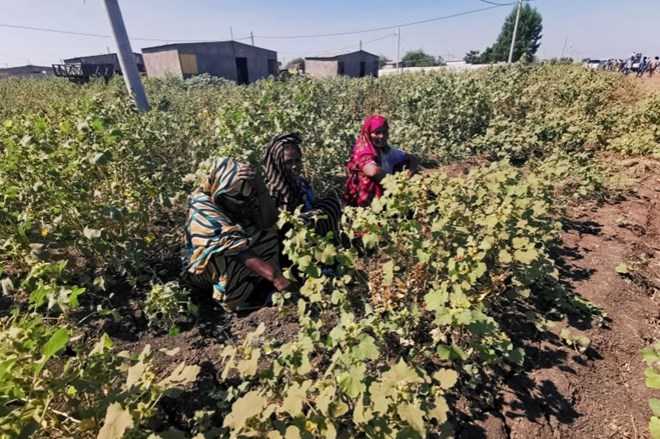
The two Horn of Africa nations have long feuded over the al-Fashqa region, where Ethiopian farmers cultivate fertile land claimed by Sudan [File: El Tayeb Siddig/Reuters]
Ethiopia has accused Sudanese forces of pushing further into a contested border region that has been the site of deadly clashes in recent weeks, warning that its “peaceful” approach to the dispute “has its limit”.
Sharing a 1,600km (994mile) frontier, the two neighbouring countries have long feuded over the al-Fashqa region, where Ethiopian farmers cultivate fertile land claimed by Sudan.
The border tensions come at a time when Ethiopia, Sudan and Egypt are also trying to resolve a three-way dispute over the controversial dam Ethiopia is building on the Blue Nile, known as the Grand Ethiopian Renaissance Dam (GERD)1“The Sudanese side seems to be pushing in so as to inflame the situation on the ground,” Ethiopian foreign ministry spokesman Dina Mufti told reporters on Tuesday. “Is Ethiopia going to start a war? Well, we are saying let’s work on diplomacy.”
“How long will Ethiopia continue to resolve the issue using diplomacy? Well, there is nothing that has no limit. Everything has a limit,” he told a media briefing in the capital, Addis Ababa.
In early December, Sudan accused Ethiopian “forces and militias” of ambushing Sudanese troops along the border, leaving four dead and more than 20 wounded.
Ethiopia, for its part, said last week that Sudan’s military had “organised attacks by using heavy machine guns” and that “many civilians have been murdered and wounded”.
Sudan’s information minister and government spokesman Feisal Mohamed Saleh said the country did not want war with Ethiopia but its forces would respond to any aggression.
“We fear that these comments contain a hostile position towards Sudan. We ask of Ethiopia to stop attacking Sudanese territory and Sudanese farmers,” he told Reuters news agency.
Multiple issues
Sudan said on December 31 it had taken control of all of the Sudanese territory in the area. Ethiopia says Sudan took advantage of its forces being distracted by the conflict in Tigray, northern Ethiopia, to occupy Ethiopian land and loot properties.
The United Nations said in a report last week on the humanitarian situation in Tigray that there were reports of a military build-up on both sides of the border around the area.
The Tigray conflict has spurred tens of thousands of Ethiopian refugees to cross into Sudan.
Separately, Ethiopia and Egypt said on Sunday that they reached a new impasse in the dispute over GERD. Egypt and Ethiopia separately blamed Sudanese objections to the framework for the talks.
Ethiopia sees the dam as key to plans to become Africa’s largest power exporter.
Egypt, which gets more than 90 percent of its scarce freshwater from the Nile, fears the dam across the Blue Nile could devastate its economy.
Sudan worries the project would affect its own dams, though it stands to benefit from access to possible cheap electricity.
On Tuesday, Ethiopia’s Dina criticised both Egypt and Sudan for delaying the negotiations. “Are the two speaking the same language? More or less. The two are speaking the same language when it comes to stalling it.”
Somali PM reserves 30% of parliament seats for women in upcoming poll
Somali PM reserves 30% of parliament seats for women in upcoming poll




Source: Hiiraan Online, Tuesday January 12, 2021
Women’s groups welcome move, but say implementing it in time for Feb. 8 vote will be challenging
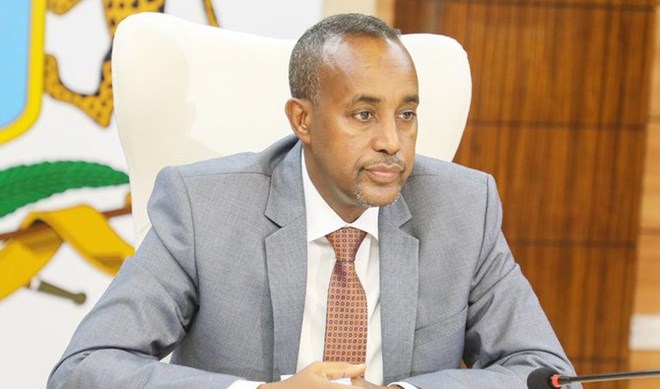
Prime Minister Mohamed Hussein Roble. (Twitter)
GAROWE, Somalia, Jan 11 (Thomson Reuters Foundation) – Nearly a third of Somalia’s parliamentary seats will be reserved for female lawmakers in an election next month, the prime minister said, a measure long demanded by women’s rights campaigners in the Horn of Africa nation.
While welcoming Saturday’s announcement by Prime Minister Mohamed Hussein Roble, some women’s groups cautioned that implementing the measure in time for the Feb. 8 poll would be challenging and depended on the commitment of clan leaders. Somalia has been riven by civil war since 1991, and due to the fragile security situation, elections consist of clan delegates choosing members of parliament as opposed to a one-person, one-vote electoral system.
Roble made the quota pledge after talks with female lawmakers – who currently hold 24% of the 329 seats in Somalia’s lower and upper houses of parliament, according to the Inter-Parliamentary Union (IPU).
“Somalia Prime Minster his Excellency @MohamedHRoble assured that the Federal Government of #Somalia is committed to ensuring a 30% quota for women in both houses of Somali parliament for the upcoming elections …,” government spokesman Mohamed Ibrahim Moalimuu said on Twitter on Sunday.
Somalia Prime Minster his Excellency @MohamedHRoble assured that the Federal Government of #Somalia is committed to ensuring a 30% quota for women in both houses of Somali parliament for the upcoming elections after meeting with women legislators in both Houses of the Parliament https://t.co/d6kkNJ4bqi— Mohamed Ibrahim Moalimuu (@MOALIMUU) January 10, 2021
Ensuring that clan leaders nominate enough women representatives will be vital to securing the full 30% quota, women’s activists said.
“The seats are shared among clans … we want assurances that we will reach our target of 30% women in the next parliament,” said Suad Salah, co-founder of LeadNow, a grassroots movement aimed at increasing women’s political voice.
Somalia has high rates of child marriage and gender violence, including rape and female genital mutilation (FGM). The United Nations says 45% of women are married before 18, while 98% have undergone FGM.
Women’s rights groups say a stronger voice at the top would have a trickle-down effect, helping women at the grassroots level fight abuse, discrimination and inequality.
Ruqiya Muhiyadin, 38, who is aspiring to run as a candidate in the capital, Mogadishu, also expressed concern over whether the clan leaders would choose women candidates.
“Initially we doubted we would get our share in the next parliament. I appeal for our cultural leaders to consider the PM’s latest pledge for women.”(Reporting by Mohammed Omer; Writing by Nita Bhalla; Editing by Helen Popper.)
Kenya-Somalia Ties Can Be Restored
Kenya-Somalia Ties Can Be Restored
Source: Aljazeera published on 11 January 2021 a commentary titled “Somalia and Kenya Still Have a Road to Neighbourly Cooperation” by Abdimalik Abdullahi.
Last December, Somalia broke diplomatic relations with Kenya “for meddling in its affairs.” The author summarizes the conflicts between Kenya and Somalia, and then argues the two countries can and should begin to take steps to resolve them. 0 commentsLabels: al-Shabaab, AMISOM, diaspora, diplomatic relations, Jubaland, KDF, Kenya, khat, maritime boundary, refugees, Somalia, Somaliland, trade
Farmaajo bows to pressure, dispatches allies to engage opposition chiefs
Farmaajo bows to pressure, dispatches allies to engage opposition chiefs




Source: Hiiraan Online, Monday January 11, 2021
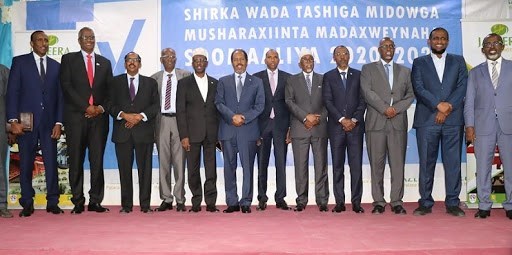
MOGADISHU (HOL) – President Mohamed Farmaajo has bowed to pressure and acceded to opposition demands to strike out contested names from the federal elections committee.
Three Federal Member States leaders allied to Farmaajo tabled a proposal during a meeting with opposition chiefs during a meeting at a Mogadishu hotel Sunday night.
Sources close to the talks told HOL the presidents of HirShabelle, Galmudug and South West presented the offer which was understandably agreed to with Farmaajo this past week.
Farmaajo has in the last one week held closed door talks with Lafta-Gareen (South West), Ahmed Qoor-qoor of Galmudug and HirShabelle’s Ali Gudlaawe.
The three presidents also said they will take up the task of negotiating with their fellow regional presidents from Puntland and Jubbaland to iron out standing thorny issues. Lafta- Gareen was reportedly tasked by Villa Somalia to lead the talks.
The Indirect talks are the first in close to three months between Villa Somalia and the opposition amid fears of political crisis as the country stares at lapsed Constitutional timelines.
Sources said Farmaajo has come under heavy international pressure to open talks with the opposition especially after PM Roble’s announcement Thursday elections will go ahead without the input of the opposition.
Both Puntland and Jubbaland are yet to form their respective elections committees demanding the withdrawal of federal troops from Gedo region as a precondition.
Senate elections which were postponed for the third time late December were slated for January 7 to 14 but the exercise has not yet commenced.
Three-way talks on Ethiopian dam reach new impasse
Three-way talks on Ethiopian dam reach new impasse
Source: By Reuters Staff, January 11, 2021
KHARTOUM/CAIRO/NAIROBI (Reuters) – Negotiations between Ethiopia, Sudan and Egypt, in a long-running dispute over the Grand Ethiopian Renaissance Dam (GERD) on the Blue Nile, have reached a new impasse, the three countries said on Sunday.Water flows through Ethiopia’s Grand Renaissance Dam as it undergoes construction work on the river Nile in Guba Woreda, Benishangul Gumuz Region, Ethiopia September 26, 2019. REUTERS/Tiksa Negeri
“We cannot continue this vicious cycle of circular talks indefinitely,” Sudanese irrigation minister Yasir Abbas said in a statement.
However, Egypt and Ethopia, in separate statements, blamed Sudanese objections to the framework for the talks for the new impasse.
Ethiopia sees the dam as key to plans to become Africa’s largest power exporter. Egypt, which gets more than 90% of its scarce fresh water from the Nile, fears the dam could devastate its economy.
Sudan said on Sunday it was concerned the dam could overwhelm its nearby Roseires dam if an agreement is not reached that would allow the countries to share data.
Ethiopia said in a foreign ministry statement that despite previously insisting on meetings with the African Union experts, Sudan objected to their terms of reference and refused to include the experts in the meeting, effectively halting the talks.
The prolonged dispute between the three countries has continued even after the reservoir behind the $4 billion dam began filling in July.
“Sudan insisted on the assigning of African Union experts to offer solutions to contentious issues … a proposal which Egypt and Ethiopia have reservations about,” Egypt’s foreign ministry said in a statement posted to social media.
In its own statement on state news agency SUNA, Sudan said it objected to what it said was a Jan. 8 letter from Ethiopia to the African Union stating that Ethiopia was determined to fill the reservoir for the second year in July with 13.5 million cubic meters of water, whether an agreement is reached or not.
In its own statement posted on the social media of the Ministry of Foreign Affairs, Ethiopia said it “took the initiative immediately to establish an effective and reciprocal data exchange mechanism.”
Reporting by Khalid Abdelaziz, Omar Fahmy, Nayera Abdallah, Nairobi newsroom, writing by Nafisa Eltahir; Editing by Bernadette Baum
Our Standards: The Thomson Reuters Trust Principle
US Treasury Secretary Visits Sudan and Egypt
US Treasury Secretary Visits Sudan and Egypt
Source: The Associated Press posted on 6 January 2021 an article titled “Sudan Says It Signs Deal on Normalizing Ties with Israel” by Samy Magdy.
US Treasury Secretary Steven Mnuchin just completed a visit to Egypt and Sudan, where the government in Khartoum signed the “Abraham Accords” that pave the way for Sudan to normalize relations with Israel. Mnuchin also discussed debt relief with the government of Sudan. 0 commentsLabels: Abdalla Hamdok, Abdel Fattah al-Sissi, Abraham Accords, debt relief, Egypt, Israel, Palestine, Steven Mnuchin, Sudan, Trump administration, US
What Does Eritrean Presence in Tigray Region Mean for Ethiopia and Eritrea?
What Does Eritrean Presence in Tigray Region Mean for Ethiopia and Eritrea?
Source: African Arguments posted on 8 January 2021 a commentary titled “Eritrea in the Tigray War: What We Know and Why It Might Backfire” by Martin Plaut, Institute of Commonwealth Studies.
The author presents the evidence documenting the presence of Eritrean troops in Tigray Region, arguing that the Tigray conflict was meant to rid Eritrean President Isaias Afwerki of his Tigrayan enemies. He concludes the problem for both Isaias and Ethiopian President Abiy Ahmed is that the conflict might drag on for months, if not years. The war could end up destabilizing either, or both, governments. 0 commentsLabels: Abiy Ahmed, Debretsion Gebremichael, ENDF, Eritrea, Ethiopia, Isaias Afwerki, Meles Zenawi, National Service, Tigray Region, TPLF, war
Ethiopia: Humanitarian Situation in Tigray Region
Ethiopia: Humanitarian Situation in Tigray Region
Source: The UN Office for the Coordination of Humanitarian Affairs (UNOCHA) published on 6 January 2021 a report titled “Ethiopia – Tigray Region Humanitarian Update.”
The report highlighted that the security situation in Tigray Region remains volatile. The humanitarian situation is dire with poor access to services and limited livelihoods. Food supplies are very limited, widespread looting is reported, and insecurity is high. 0 commentsLabels: Afar Region, Amhara Region, COVID-19, Ethiopia, food insecurity, health care, humanitarian assistance, ICRC, IDPs, refugees, Sudan, Tigray Region, UNHCR, UNICEF, UNOCHA, WFP, WHO
Somaliland Passes Law Paving Way For Launch Of Free Trade Zone
Somaliland Passes Law Paving Way For Launch Of Free Trade Zone




ource: EABW, By Godfrey Ivudria
Saturday January 9, 2021
Somaliland lower house has approved the Free Trade Zone law giving clearance for the launch of the Berbera Free Trading zone in the country.
The house gave clearance for the completion of the Free Zone which is situated on 12 square kilometres land in the Port City of Berbera and is expected to be opened in 2022.
The Berbera Free Zone will offer stiff competition to the Djibouti International Free Trade Zones (DIFTZ) which is currently considered as Africa’s biggest trade zone with a total investment of $3.5 billion and span an area of 4,800 hectares.The Berbera Free Zone is modelled on DP World’s Jebel Ali Free Zone (Jafza) in Dubai and aims to attract investments, encourage trade, create new jobs and position Berbera as a gateway port for the region.
The free zone will house various businesses including warehousing, logistics, traders, manufacturers and other related businesses
In December 2019, Somaliland President Muse Bihi and the Vice President of the DP World Suhail Al Banna officially signed the agreement setting the stage for the construction of the project.
“Our vision for Berbera is to make it a regional maritime hub in the Horn of Africa and its development will encourage growth for the region’s economy,” said Al Banna.
“It’s also a boost for local prosperity — jobs for the people of Somaliland and future generations. We look forward to bringing our global experience here and to help develop the Berbera Corridor, which is key to encouraging regional economic activity,” he added.
But the Berbera Free Zone will have to compete with the Djibouti Free Zone which was launched in May 2018.
Just like the Djibouti Free Zone which is linked to the Djibouti Port, the Berbera Free Zone will be linked to the Berbera Port which is in its final stages of expansion by the DP World and is expected to be officially opened by April.
The Berbera Port is already posing a threat to Djibouti.
Djibouti’s port is the main transit point for imports to and exports from Ethiopia, but the government in Addis Ababa wants to diversify its options with Berbera as its main option.
In 2016, Somaliland signed a 30 year contract with United Arab Emirates-owned DP World, the world’s third-largest port operator, to manage and expand the port at Berbera. The joint-venture Berbera deal is between Somaliland (30%), DP World (51%) and Ethiopia (19%).
The port of Djibouti container terminal, currently has a handling capacity of 350,000 ten for equivalent units (TEUs) per annum while once complete, Berbera’s containerized cargo capacity will hit 450,000 TEU per year.
WHO seeks funding to help Somalis affected by cyclone
WHO seeks funding to help Somalis affected by cyclone




Source: WHO, Sunday January 10, 2021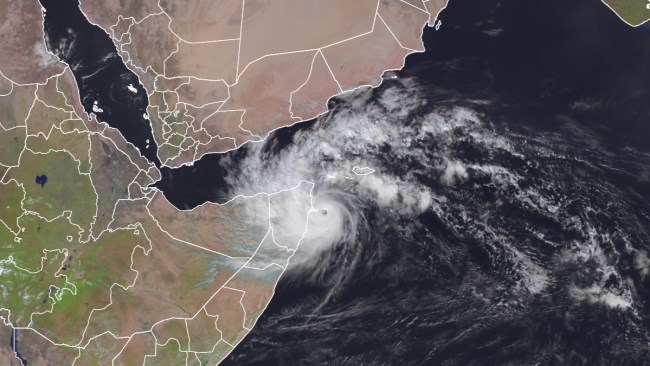
The World Health Organization (WHO) said it is seeking 1.23 million U.S. dollars to help Somalis affected by tropical cyclone, Gati, which made landfall in Puntland state in northeast Somalia on Nov. 22 last year.
The UN agency said the funds will be used to implement a timely intervention to prevent deaths and help Somalia overcome the negative consequences of the cyclone.
“With the affected people having no access to basic health care needs, and limited sanitation, this could result in an increase in diseases such as vaccine-preventable diseases like measles, and waterborne diseases, and diarrhoea,” WHO said in a statement issued on Thursday evening.It said the humanitarian partners are collaborating with the government to reach 101, 000 people — about 84 percent of those affected by the cyclone — and are finalizing a response plan that outlines additional financial support they need to avert any additional suffering in the cyclone-affected areas.
By the end of December 2020, the storm had killed nine people and more than 63,000 livestock, and affected around 183, 000 people, according to the UN.
WHO said it collaborated with other humanitarian agencies to conduct a rapid inter-agency assessment in the affected areas in late November 2020 to understand the humanitarian impact of cyclone Gati and determine the most urgent needs of the population.
It said the assessment also determined the available resources and capacities within districts affected, and will guide an effective response to the storm.
“The most immediate humanitarian needs of affected populations include food, water, sanitation and hygiene, emergency shelter and the prevention of waterborne, vector-borne and communicable diseases,” WHO said.
“These include cholera, malaria, dysentery, diarrhea, and skin diseases due to families being inundated with contaminated water. Stagnant water in some areas also threatens to serve as ideal breeding grounds for mosquitoes,” the UN health agency said.
It warned that the situation is already resulting in an increase in malnutrition due to lost livelihoods and assets, and a potential increase in COVID-19 and other airborne diseases due to crowded living conditions.
Former president blasts gov’t decision to hold partial elections
Former president blasts gov’t decision to hold partial elections




Source: Hiiraan Online, Sunday January 10, 2021
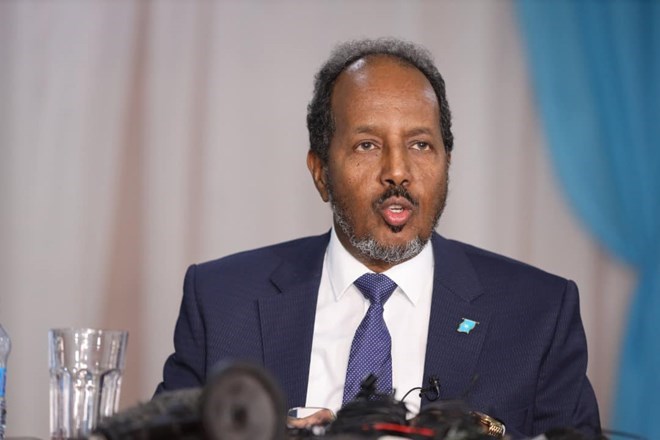
Mogadishu (HOL) – Former Somali President Hassan Sheikh Mohamud has reacted strongly to the government’s decision to hold national elections despite strong opposition from some regional states.
Speaking during a press conference in Mogadishu on Saturday night, Hassan Sheikh described the government’s decision as a threat to the country’s unity, adding that it was unacceptable to hold a one-party election.
Both Jubaland and Puntland have refused to participate in the elections unless the federal government met several prerequisites. Chief among them was the dismantling of the elections committee, which they perceive as being stacked with Farmaajo loyalists. As well as removing federal troops from the Gedo region. said that Somalia began to chart a political path to legitimate elections by consensus after stakeholders convened in Dhusamareeb for several conferences and later in Mogadishu, where opposition figures and the federal government made a deal. He accused the federal government of negating that arrangement.
“The Somali people must know that the reason why the deal isn’t being honoured is because of the federal government. They are the ones responsible for dispatching federal troops to regional states, and actively trying to subvert the political process in the name of President Farmaajo.”
Mohamud condemned the recent incursion into Beledweyne by federal troops to quell unrest in the Hiiraan region.
He warned that the blame for any political instability caused on February 8th by the government’s decision to hold partial elections would be squarely at the President’s feet and his supporters.
Turkey provides commando training to Somali soldier
Turkey provides commando training to Somali soldiers




By Zafer Fatih Beyaz
Source: AA, Wednesday January 6, 2021
Basic commando training given to 150 military personnel of Somali Armed Forces since Dec. 21, says Turkish Defense Ministry
Somali soldiers are being trained within the Military Training and Cooperation Agreement between Turkey and Somalia in Isparta, Turkey on January 5, 2021 [Muhabiri Turkish Defence Ministry/Anadolu Agency]
ANKARA,Turkey— Some 150 Somali army soldiers are receiving special commando training in Turkey under a military cooperation pact between the two countries, the Turkish National Defense Ministry said on Tuesday.
The training of the Somali Armed Forces soldiers is taking place at the Counter-Terrorism Training and Exercise Center in Turkey’s southwestern province of Isparta, said a ministry statement. We are providing Commando Basic Training to 150 guest military personnel from the Somali Armed Forces,” said the statement.
“The training, which began on Dec. 21, 2020, has been continuing as planned.”
Last August, Turkey’s Ambassador to Mogadishu Mehmet Yilmaz told Anadolu Agency that Turkey is on track to train some one-third of Somali military forces, totaling around 15,000-16,000 personnel.
Relations between Turkey and the Horn of Africa nation are historically strong, and picked up pace after President Recep Tayyip Erdogan’s official visit in 2011, making him the only non-African leader to visit Somalia in 20 years.
Turkey has also been continuing its support to Somalia with humanitarian aid in the areas of health, education and security.
As it has extensive experience fighting terrorists, Turkish training of the Somali military is also helpful in countering Somalia’s own terrorist threat.
*Writing by Merve Berker
Region Skåne har bekräftat att man funnit ett fall av den nya brittiska mutationen i Skåne
Source: Julias Vikförsson, Sydsvenskan, 4 januari 2021
Region Skåne har bekräftat att man funnit ett fall av den nya brittiska mutationen i Skåne, skriver SVT Nyheter. Hittills har elva fall av det muterade coronaviruset konstaterats i Sverige. ”Vi har fått ett fall bekräftat. Det rör sig om en person som rest in från Storbritannien. Personen har följt alla de rekommendationer som gäller så vi ser ingen risk för att smittan kan ha förts vidare” skriver Smittskydd Skåne i ett mejl till SVT Nyheter
Egypt, Ethiopia, Sudan resume Nile dam talks

Egypt, Ethiopia, Sudan resume Nile dam talks




Source: DW, Monday January 4, 2021
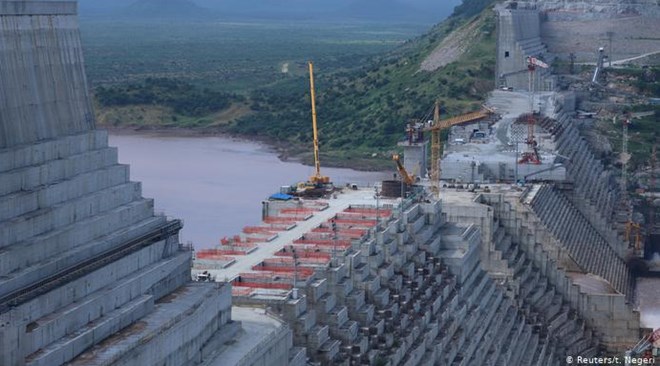
The three countries are seeking to resolve a row over the huge dam on the Blue Nile. The controversial structure has been almost a decade in the making but there is optimism a deal could be reached by the end of January. Three-way objectives
claims the hydroelectric power produced at the dam is essential for it to meet the energy needs of its population. Ethiopia also insists downstream countries’ water supplies will not be adversely affected.
However, the other two countries at the resumed talks have expressed concerns.
Egypt, which relies on the Nile for about 97% of its irrigation and drinking water, fears the dam would severely cut its water supplies.
Sudan is hopeful the dam will help ease flooding fears, but has also warned that millions of lives would be at “great risk” if no binding agreement was reached.
The three African nations at the center of a spat over the controversial building of the Grand Ethiopian Renaissance Dam resumed talks on Sunday, officials said.
Egypt, Ethiopia and Sudan reopened their yearslong negotiations just six weeks after Sudan boycotted the last round of discussions. It had urged continental body the African Union to play a greater role in reaching a consensus over the disputed dam on the Blue Nile.
The three Nile Valley countries held a fresh round of talks by video conference in the virtual presence of South African officials, as well as other international observers. South Africa is the current head of the African Union’s rotating council.
Hoping for a conclusion within weeks
“The meeting concluded … that this week will be devoted to bilateral talks between the three countries, the experts, and the observers,” Sudan’s Water Ministry said in a statement.
This week’s negotiations will pave the way “for the resumption of tripartite negotiations on Sunday January 10 in the hope of concluding by the end of January,” the ministry added.
Nile dam dispute: Sudan, Egypt, Ethiopia agree to hold more talks
Nile dam dispute: Sudan, Egypt, Ethiopia agree to hold more talks
Source: Aljazeera, The three counties will hold more talks over disputed dam this month after previous negotiations failed to reach a deal.
![The Nile is a lifeline supplying both water and electricity to the 10 countries it traverses [File: Tiksa Negeri/Reuters]](https://www.aljazeera.com/wp-content/uploads/2020/10/2020-10-05T112416Z_1515739621_RC2BCJ9LCWQQ_RTRMADP_3_ETHIOPIA-SECURITY.jpg?resize=770%2C513)
Sudan, Egypt and Ethiopia agreed on Sunday to hold further talks this month to resolve their long-running dispute over the Addis Ababa’s huge dam on the Blue Nile, Sudan’s water ministry said.
Previous three-way talks have failed to produce an agreement on the filling and operation of the vast reservoir behind the 145-metre (475-foot) tall Grand Ethiopian Renaissance Dam (GERD), a hydropower project which broke ground in 2011.KEEP READINGEgypt summons Ethiopia diplomat over Nile dam remarksNile dam talks between Egypt, Ethiopia and Sudan fail againSudan: Millions at risk if Ethiopia fills mega dam without deal
On Sunday, the three countries held a new round of talks by video conference in the virtual presence of South African officials, as well as other international observers. South Africa currently holds the African Union’s rotating chair.
“The meeting concluded … that this week will be devoted to bilateral talks between the three countries, the experts, and the observers,” Sudan’s water ministry said in a statement.
This week’s talks will pave the way “for the resumption of tripartite negotiations on Sunday January 10 in the hope of concluding by the end of January”, it noted.
The negotiations have centred on the filling and operation of the giant dam.
Key questions remain about how much water Ethiopia will release downstream if a multiyear drought occurs and how the three countries will resolve any future disputes. Ethiopia has rejected binding arbitration at the final stage of the project.https://imasdk.googleapis.com/js/core/bridge3.432.0_en.html#goog_1813723404Play Video
Egypt, which depends on the Nile for about 97 percent of its irrigation and drinking water, fears Ethiopia’s dam would severely cut its water share.
Sudan – which boycotted talks in November, urging the African Union to play a greater role in reaching a deal – hopes the dam will help ameliorate flooding, but has also warned that millions of lives would be at “great risk” if no binding agreement was reached.
Ethiopia says the hydroelectric power produced at the dam is vital to meet the power needs of its population and insists downstream countries’ water supplies will not be affected.
The Nile, the world’s longest river, is a lifeline supplying both water and electricity to the 10 countries it traverses.
Its main tributaries, the White and Blue Niles, converge in the Sudanese capital Khartoum before flowing north through Egypt to drain into the Mediterranean Sea.
UN/African Union Peacekeeping Mission in Darfur Comes to an End
UN/African Union Peacekeeping Mission in Darfur Comes to an End
Source: Agence France Presse published on 31 December 2020 a story titled “Peacekeeping Mission in Sudan’s Darfur Ends.” On the same day, the United Nations issued an announcement titled “United Nations, African Union Reiterate Commitment to Sudan, as Join Mission Ends Operations.”
The mandate of the hybrid United Nations/African Union peacekeeping mission in Darfur, Sudan, ended on 31 December 2020. In existence since 2007, the nearly 7,000 military, police, and civilian personnel will depart Darfur over the next six months. 0 commentsLabels: AU, Darfur, genocide, peacekeeping, Sudan, UN, UNAMID
Thursday, December 31, 2020
Blunting Jihadi Attacks on Somalia’s Upcoming Elections
Blunting Jihadi Attacks on Somalia’s Upcoming Elections
Source: The International Crisis Group (ICG) published on 31 December 2020 a briefing titled “Blunting Al-Shabaab’s Impact on Somalia’s Elections.”
Somali jihadi groups al-Shabaab and the Islamic State are preparing to wreak havoc on parliamentary and presidential elections in Somalia in January and February. The ICG brief concludes that securing the vote will be a major challenge. 0 commentsLabels: al-Shabaab, AMISOM, counterterrorism, elections, Ethiopia, governance, Islamic State, Mohamed Abdullahi Farmajo, SNA, Somali jihadis, Somalia, suicide bombings, Trump administration, US
Update: Two killed among them a Turkish national in Lafoole bomb attack

Update: Two killed among them a Turkish national in Lafoole bomb attack




Source: Hiiraan Online, Saturday January 2, 2021
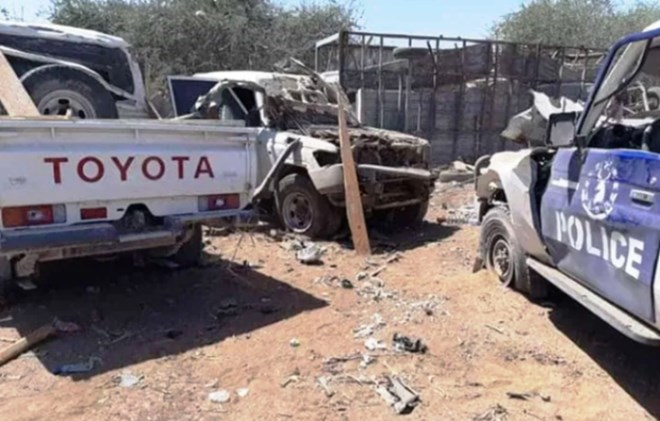
MOGADISHU (HOL) – Two people have been confirmed dead in the Lafoole bombing along Mogadishu-Afgooye road, medical sources have confirmed.
Medical sources at Erdogan hospital in Mogadishu told journalists one Turkish national and a Somali, both of whom were road workers died in the attack. Four other people among them three Turkish nationals and a Somali were injured.
Sources saida vehicle loaded with explosives blew up near a police station in Lafoole area in the mid-morning.
The militant group which claimed responsibility for the attack has conducted several other killings and bombings aimed at stopping the road construction. Over 80 people were killed in Ex-Control area along the Mogadishu-Afgooye road December 31, 2019.
Sudan army: ‘We regained control over 80% of our borderlands with Ethiopia
Sudan army: ‘We regained control over 80% of our borderlands with Ethiopia’




Source: Middle East Monitor, Thursday December 31, 2020
Sudanese Army’s deputy chief of staff, Lieutenant General Khaled Abdin al-Shami, speaks to the members of press as Sudanese army has retaken control of an area in the al-Fashqa border region with Ethiopia on 29 December 2020, in eastern Al -Qadarif State, Sudan. [Mahmoud Hjaj – Anadolu Agency]
The Sudanese army announced that it has regained control over 80 per cent of Sudanese territory previously seized by Ethiopian militias, stressing that: “The confrontations were against members of the Ethiopian army, not militias, considering the use of large-scale and long-range weapons.”
Lieutenant General Khaled Abdin Al-Shami, deputy chief of staff of the Sudanese army, confirmed in statements that the army had regained 80 per cent of borderlands and took control of a large number of villages inhabited by Ethiopian militias. Al-Shami added that the operations would not stop until all Sudanese lands are recovered.
According to Al-Shami, the Sudanese army has reached sites that allow it to secure borders and farmlands in the areas of Al-Fashaqa Al-Kubra and Al-Fashaqa Al-Sughra, noting that: “The armed forces have completely secured these areas and are ready to face any party contemplating attacks against them.”
The Sudanese army has implemented all its planned operations in the border territory, although it has not yet reached the final borders, explained Al-Shami.
Major General Mohamed Ahmed Sabir, deputy head of the Military Intelligence Authority of the Sudanese army, announced on Tuesday that his country’s forces have no hostile intentions towards Ethiopia. He confirmed that the Sudanese forces are moving: “With a sense of responsibility in the Sudanese border area to secure it as part of their routine work in accordance with the provisions of the constitution.”
According to the official Facebook page of the Sudanese Armed Forces, Sabir affirmed: “The armed forces are still securing Sudan’s borders to reclaim agricultural lands in its eastern borders with Ethiopia, the area of which is estimated to be over 2.5 million acres that were previously out of our control.”
Meanwhile, the Sudanese Security and Defence Council held an emergency session on Tuesday evening, headed by Chairman of the Sovereignty Council Abdel Fattah Al-Burhan, to discuss the developments in the eastern borders.
In a statement, the Sovereignty Council welcomed: “The esteemed effort made by the armed forces in the Sudanese region of Al-Fashaqa to defend the territories and secure the borders.”
Ashraf Abdelaziz, editor-in-chief of Sudanese newspaper Al Jareeda, said in an interview with Al-Hurra TV that he expects more confrontations between the two sides due to the current tension.
On the other hand, the Ethiopian Foreign Ministry confirmed that it would take steps to protect its sovereignty if Sudan did not stop what it described as “illegal activities” along the border.
Ethiopian Foreign Minister Demeke Mekonnen accused Sudan of using the war in the Tigray region to advance towards Ethiopian territories.
Dina Mufti, a spokesperson for the Ethiopian Foreign Ministry, told Al Jazeera TV that the government would step up its efforts to resolve the conflict that has erupted on the border between Ethiopia and Sudan, denying that his country warned Sudan about the border conflict.
Mufti added that Sudan is a brotherly country that Ethiopia can only advise, accusing a third party – which he did not name – of fuelling the dispute.
Ethiopian social media activists have accused Egypt of working actively and secretly to provoke a confrontation between Khartoum and Addis Ababa.
Egypt has not yet officially commented on the current tension between Sudan and Ethiopia.
On 19 December, Sudan announced sending massive military reinforcements to the borders with Ethiopia to “reclaim usurped lands from an Ethiopian militia in Al-Fashaqa area,” reported Sudan News Agency (SUNA).
On Wednesday, Sudan and Ethiopia ended talks on the demarcation of the border in Khartoum, without announcing any decisions taken.
The border demarcation agreement between the UK and Ethiopia dates back to 1902, prior to Sudan’s independence in 1956. Disagreements over this issue are still ongoing.
UN chief appoints Anita Kiki Gbeho as deputy special representative for UN mission in Somalia
UN chief appoints Anita Kiki Gbeho as deputy special representative for UN mission in Somalia




Source: UN news Center, Thursday December 31, 2020
UNITED NATIONS, Dec. 30—United Nations Secretary-General Antonio Guterres on Wednesday announced the appointment of Anita Kiki Gbeho of Ghana as his new deputy special representative for the United Nations Assistance Mission in Somalia.
Gbeho succeeds Raisedon Zenenga of Zimbabwe who has been appointed as assistant secretary-general and mission coordinator of the United Nations Support Mission in Libya and to whom the secretary-general is grateful for his dedicated service and contribution to the work of the United Nations in Somalia, according to a press issued by the spokesman’s office of the UN chief”Ms. Gbeho brings over 25 years of experience in strategic planning, coordination and management in political, development and humanitarian affairs at United Nations headquarters and in field operations. Her work has included establishing high level political and strategic relations with national authorities, regional bodies and partners in conflict and post-conflict environments and diverse settings such as Angola, Cambodia, Iraq, Namibia, Sudan and Somalia. Since May 2018, Ms. Gbeho has served as deputy joint special representative of the United Nations-African Union Hybrid Operation in Darfur where she led the development and implementation of the Mission’s transition strategy. From July 2015 to April 2018, she was resident coordinator and resident representative with the United Nations Development Programme in Namibia. She has also served as chief of section in the Office for the Coordination of Humanitarian Affairs in New York and as head of office for OCHA in Somalia and Southern Sudan,” according to the press note.
Gbeho holds a bachelor of arts in social sciences and African studies from the State University of New York and a master’s degree in international relations from the University of Ghana.
Born in Accra, Ghana, Gbeho has a daughter.
